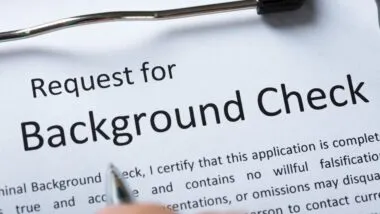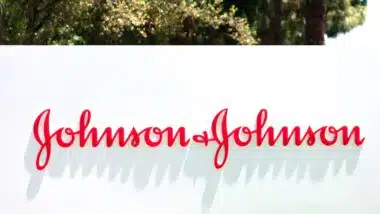
TCF National has agreed to an overdraft settlement with the Consumer Financial Protection Bureau that brings an end to claims that the bank used deceptive practices to market its overdraft protection program, which particularly affected students at the University of Minnesota.
According to the overdraft lawsuit, TCF had a policy of requiring its employees to heavily market overdraft protection at new customers, even leading them to believe that participating in the overdraft protection program was required for new account holders.
Overdraft fees at TCF were $35 per transaction—a cost that can add up quickly, since overdraft transactions sometimes happen in groups. Overdraft fees are even worse when a bank reorders transactions from highest to lowest, which can mean that an account ends up with even more overdrawn transactions, and thus even more fees.
The overdraft settlement includes $25 million set aside in restitution to those affected by its overdraft policies, as well as a civil penalty of $5 million.
While the overdraft settlement does not mean that TCF National admitted to any wrongdoing, the bank has also agreed that its employees will no longer be required to market credit protection to new customers. Indeed, under the 2010 Dodd-Frank Wall Street Reform and Consumer Protection act, consumers have to be informed that signing up for overdraft protection is not necessary when opening an account, and requires affirmative opting in.
Since TCF National Bank has a partnership with the University of Minnesota, students at that college may have been disproportionately affected. The CFPB has noted that the financial situations of students are often not entirely stable, and that the effects of unexpected or excessive overdraft fees may be financially harmful. According to a report by Pew, college-aged people are among those who overdraw their accounts the most.
The overdraft settlement was reached in July 2018.
What is Overdraft Protection?
When a consumer is signed up for a bank’s overdraft protection program, they are charged bank overdraft fees when they overdraw their account, allowing them to make the transaction despite not having the money in that account—for a set overdraft fee. This allows consumers to cover transactions when they normally would have hit the bottom of their account by transferring money from a linked account or loaning money from the bank.
Overdraft programs are a common feature of banks and credit unions, and the amount of money bank overdraft fees rake in each year is rapidly increasing. Indeed, in 2017 alone, consumers paid a whopping $34.3 billion in bank overdraft fees. This is the highest that bank overdraft fees have been since the end of the recession in 2009—up from $33.3 billion in 2016.
Unfortunately, bank overdraft fees may not be beneficial for everyone. In some cases, a bank or a credit union may use deceptive practices to wring the highest amount in bank overdraft fees out of their consumers.
Deceptive Overdraft Practices
In some cases, customers are not informed of how the overdraft program works. When customers sign up for an account, they may not be told all the details of the program or its associated fees. Others may not even be informed that they have the ability to opt out of the overdraft protection program—although voluntarily opting in to an overdraft protection program has been required since August 2010.
Some banks may rearrange transactions to collect more in fees, deliberately skewing the order of customers’ transactions to incur the greatest number of fees possible. When a bank rearranges transactions from highest to lowest rather than from first to last, each transaction is increasingly more likely to overdraw an account. A large transaction processed earlier can tip a customer to overdraw their account earlier, with even more transactions left to be charged an overdraft fee. These bank overdraft fees then compound, and customers are left with a much heftier sum to pay.
Filing an Overdraft Lawsuit
A number of financial institutions are being investigated for the use of unfair or deceptive overdraft practices, including, Pacific Western Bank, Boeing Employees Credit Union, Digital Credit Union, and several others.
If you were also affected by deceptive or unfair bank overdraft fees at these or other financial institutions, you may be able to file a class action lawsuit to pursue your own compensation.
Do YOU have a legal claim? Fill out the form on this page now for a free, immediate, and confidential case evaluation.
The attorneys who work with Top Class Actions will contact you if you qualify to let you know if an individual lawsuit or class action lawsuit is best for you. Hurry — statutes of limitations may apply.
ATTORNEY ADVERTISING
Top Class Actions is a Proud Member of the American Bar Association
LEGAL INFORMATION IS NOT LEGAL ADVICE
Top Class Actions Legal Statement
©2008 – 2026 Top Class Actions® LLC
Various Trademarks held by their respective owners
This website is not intended for viewing or usage by European Union citizens.
Get Help – It’s Free
Join a Free Bank Overdraft Fee Class Action Lawsuit Investigation
If your bank and credit union has engaged in deceptive overdraft fee practices, you may have a legal claim. Fill out the form on this page now to find out if you qualify!
An attorney will contact you if you qualify to discuss the details of your potential case.
PLEASE NOTE: If you want to participate in this investigation, it is imperative that you reply to the law firm if they call or email you. Failing to do so may result in you not getting signed up as a client or getting you dropped as a client.
In order to properly investigate overdraft fee claims, you may be required to disclose bank statements to overdraft fee attorneys. Please note that any such information will be kept private and confidential.












